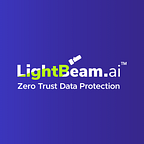New York Privacy Legislation Scenario
The New York Privacy legislation sets forth provisions for companies to legally and responsibly manage personal data. Companies are required to handle confidential information ethically and legally under this law.
NY data protection regulations will require companies to obtain customer consent, reveal their de-identification procedures, and put controls and protections in place to secure personal information. Additionally, consumers will have more control over their data, such as the right to know specifics about the businesses that possess it.
The Consumer Protection Committee reintroduced the New York Privacy Act into the Senate in May 2021. The NYPA is a comprehensive consumer privacy law that seeks to safeguard the privacy of New Yorkers by giving people more control over their data and holding businesses responsible.
Central Conditions of data regulation
- Right to Notice
Consumers will be entitled to information about what data is being processed, who is doing it, and why, among other things.
- Opt-In Consent
The data subject must consent clearly and informally before collecting or processing personal data.
- Right to Access and Correct Data
Businesses will require to offer simple methods for data subjects to access information about the personal information being held and request corrections.
- Right to Delete
Businesses must offer easily accessible channels for data subjects to ask that companies delete all of their personal data. It also entails ensuring that third parties dispose of material with the same limitations.
The new legislation will mandate disclosures regarding automated decision-making based on personal data and require annual risk assessments. Data that is no longer required must be deleted once a year.
Characteristics of the law
1. Data security requirements
To secure the private information of New York citizens, enterprises are required by New York’s privacy statute to maintain appropriate data security measures. Implementing administrative, technical, and physical protections to prevent unauthorized access, use, or disclosure of personal information is part of this criterion.
2. Expanded definition of private information
The terms “biometric data,” “email addresses,” and “login credentials” are now included in the definition of private information under New York’s privacy laws. It demands that companies take extra security measures to safeguard this information and alert customers in the case of a data breach.
3. Right to access and manage personal data
New York’s legislation proposal would allow customers to see, update, and erase the personal data that businesses have acquired about them. Individuals would have more influence over how their personal information is used if this were to happen.
4. Consent requirements for data sharing
Explicit approval is required from customers before firms can share or sell their personal information to third parties. Individuals would have more control over how their personal data is transferred and used if this were to happen.
5. Enforcement mechanisms
New York’s privacy legislation includes enforcement measures to ensure adherence to privacy obligations. The SHIELD Act, for instance, imposes civil penalties on companies that don’t adopt reasonable data security measures. In contrast, the proposed NYPA bill would grant the New York Attorney General the authority to enforce privacy laws and prosecute companies that violate them.
How does the law apply?
The specifics of how the law would apply to organizations doing business in New York and presumably those handling the personal data of New York citizens have not yet been determined.
The following is stated as the projected criterion for NYPA application:
- If your gross revenue exceeds $25,000,000 per year
- If you have access to the data of at least 100,000 residents of New York
- If you have access to data on at least 500,000 people overall, with 10,000 of them being New Yorkers
- If the sale of personal data accounts for 50% or more of your total revenue
Data dealers and targeted advertisers are not the only ones who should be aware of the future rules and laws to avoid breaking them and incurring fines. These regulations are to be followed by any business or organization that handles, processes, stores, or utilizes personal information of any type.
Penalties for not following New York’s privacy legislation
The penalties for not following New York’s privacy legislation can vary depending on the specific law that is violated.
Failure to comply with this law will result in fines and penalties that may be financially devastating. The penalties for breaking NYPA are less severe than those under rules like the GDPR, with a maximum fine of $15,000 per offense. It could seem reasonable initially, but we need to define what counts as a single violation because it might build up.
Conclusion
New York’s privacy legislation is designed to provide excellent protection for the privacy of New York residents. The legislation includes expanded data protection requirements, increased control over personal information, and enforcement mechanisms to ensure compliance with privacy regulations.
Businesses that take proactive measures to secure New York citizens’ privacy can help reduce the danger of data breaches, protect the private information of their clients and staff, and stay out of trouble with the law.
